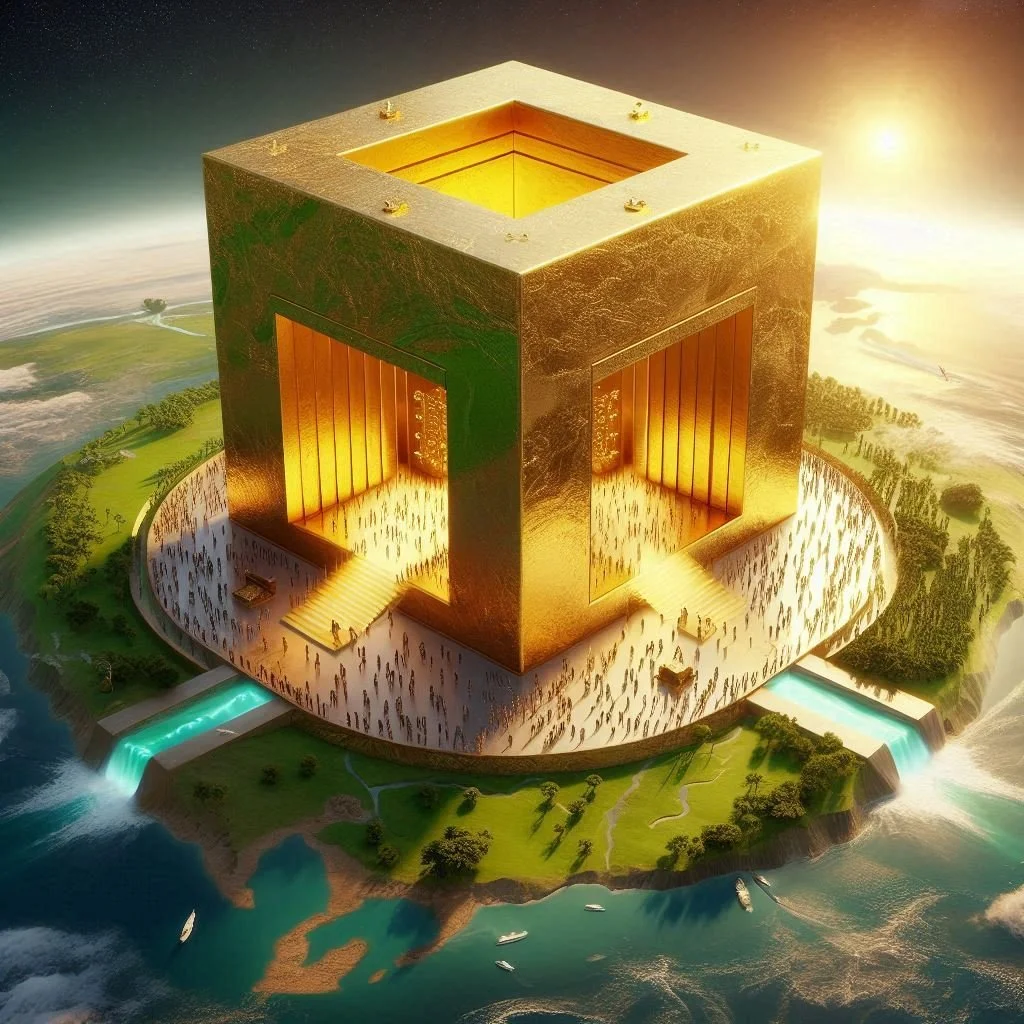Let’s Study Heaven
The New Jerusalem
From a biblical perspective, Heaven is primarily understood as the dwelling place of God. The Scriptures describe it as a place of divine presence, holiness, and perfect peace, far removed from the sin and suffering of the earthly realm. It is the ultimate destination for believers after death, where they will be in the direct presence of God and Jesus Christ. The book of Revelation, in particular, paints a vivid picture of a "new heaven and new earth," where God's tabernacle is with humanity, and there is no more death, mourning, crying, or pain. This concept of Heaven is not merely a spiritual state but a tangible, renewed creation where righteousness dwells.
Furthermore, the Bible portrays Heaven as a place of eternal worship and fellowship. The heavenly host, including angels and redeemed saints, are depicted as perpetually praising God, offering him glory, honor, and thanksgiving. This eternal worship is a central aspect of the heavenly experience, reflecting a perfect and unending relationship with the Creator. It is a place of reunion with other believers and a fulfillment of all the promises of God, where believers will receive new, glorified bodies and live in perfect harmony with God and one another for all eternity. The hope of Heaven provides comfort and strength for Christians, grounding their faith in the assurance of a future beyond this life.
A cornerstone of this future hope is the concept of the New Jerusalem, a magnificent city described in the book of Revelation. This is not just a spiritual metaphor, but a tangible, eternal dwelling place that "comes down out of heaven from God." It is a city of unimaginable beauty, with streets of pure gold, a wall of jasper, and twelve gates, each made of a single pearl. The foundations of its walls are adorned with every kind of precious stone, and the city itself is laid out in perfect symmetry, with its length, width, and height being equal. This perfection and dazzling brilliance are a testament to the fact that this is a city where the glory of God is its only light, and where the presence of the Almighty and the Lamb is the central feature. It is a place free from all curses, where the river of the water of life flows and the tree of life provides its fruit for the healing of the nations, a reversal of the curse that entered the world in Eden.
The Bible also assures believers that this beautiful place is being prepared for them by Jesus Himself. In John 14:2-3, Jesus tells His disciples, "In My Father's house are many rooms; if it were not so, I would have told you. I am going there to prepare a place for you. And if I go and prepare a place for you, I will come back and take you to be with Me that you also may be where I am." This promise underscores the personal and intimate nature of God's love. The New Jerusalem is not a generic destination but a home specifically prepared for God's children. This preparation is a work of love, ensuring that when Christ returns, His people will be received into an eternal home that is perfect in every way, a place of rest, reunion, and unending fellowship with God and one another. This gives Christians a profound sense of hope and purpose, knowing that their ultimate destiny is a magnificent and secure home with their Creator.
The vision of a new heaven and a new earth presented in Scripture is one of profound restoration and breathtaking beauty. The new earth will be a place of perfect harmony, where the natural world is no longer subject to decay or the curse of sin. The book of Isaiah speaks of a time when the wolf and the lamb will lie down together, and a child will play near the den of a cobra, illustrating a peace that permeates all of creation. This new earth will be a vibrant and flourishing landscape, a paradise far surpassing the original Garden of Eden. Every element will reflect God's glory and design in a way that has been impossible since the Fall. The land will be free from the threat of natural disasters, droughts, and famines. Instead, it will be a place of perpetual fertility and beauty, where every plant and animal lives in perfect accord, all under the benevolent rule of Christ.
A particularly striking detail about this new creation is the absence of a sea. Revelation 21:1 states, "Then I saw a new heaven and a new earth, for the first heaven and the first earth had passed away, and the sea was no more." While this might seem strange to some, it holds profound theological significance. In the ancient world, and often in biblical symbolism, the sea represented chaos, danger, and the unknown depths from which evil forces could arise. Its disappearance signifies the complete eradication of all sources of chaos, turmoil, and separation. The sea often served as a barrier, but in the new earth, there will be no barriers to fellowship with God or with one another. This absence of the sea signifies a world of perfect order, unity, and safety, where God's peace reigns supreme and there is nothing to separate humanity from His presence. Instead of a vast, separating ocean, there will be the life-giving river flowing from the throne of God, bringing life and healing to the entire new earth.
Based on the biblical account, the most comforting promise for those who have experienced suffering and loss is the assurance that a new reality is coming. The book of Revelation offers a powerful image of God's final act of redemption, where He personally intervenes to rectify all the pain of the past. It states that God will "wipe away every tear from their eyes," an intimate and tender gesture that signifies the complete removal of all sorrow, grief, and emotional pain. This isn't just a metaphor for forgetting; it's a promise of a new existence where the very sources of anguish—death, mourning, crying, and physical pain—are no longer a part of the created order. The "former things" will have passed away entirely, leaving behind a world where hurt and heartache are forever gone, replaced by a perfect and unending peace.
This new existence is defined by the gift of eternal life, which the Bible describes not merely as unending existence, but as a perpetual and intimate relationship with God. In the Gospel of John, Jesus Himself defines eternal life as "that they know you, the only true God, and Jesus Christ whom you have sent." This forever home is not simply a place to inhabit, but a state of being where believers are in constant, unbroken fellowship with their Creator. This is the ultimate fulfillment of God's redemptive plan—a permanent, blissful communion with Him that began in this life and is perfected in the next. The promise of living forever with God, free from the burdens of this fallen world, is the ultimate hope that sustains believers, giving them an enduring foundation in a world of temporary troubles.
Living forever will be a state of unimaginable joy and fulfillment, a complete reversal of the transient and often sorrowful nature of life on earth. It will be an eternal existence spent in the direct and unhindered presence of God, where every moment is a deepening of our relationship with our Creator. We will be free from the burdens of sin, sickness, and death, experiencing a perfection that is impossible in this current world. With new, glorified bodies and minds, we will have the opportunity to explore the restored creation, to continue learning and growing, and to discover the depths of God's wisdom and beauty for all eternity. This forever life is not a static or boring existence, but a dynamic and purposeful one, filled with unending praise, fellowship with others, and a perfect peace that surpasses all understanding. It is the ultimate and complete realization of all that we were created to be.
Heaven









